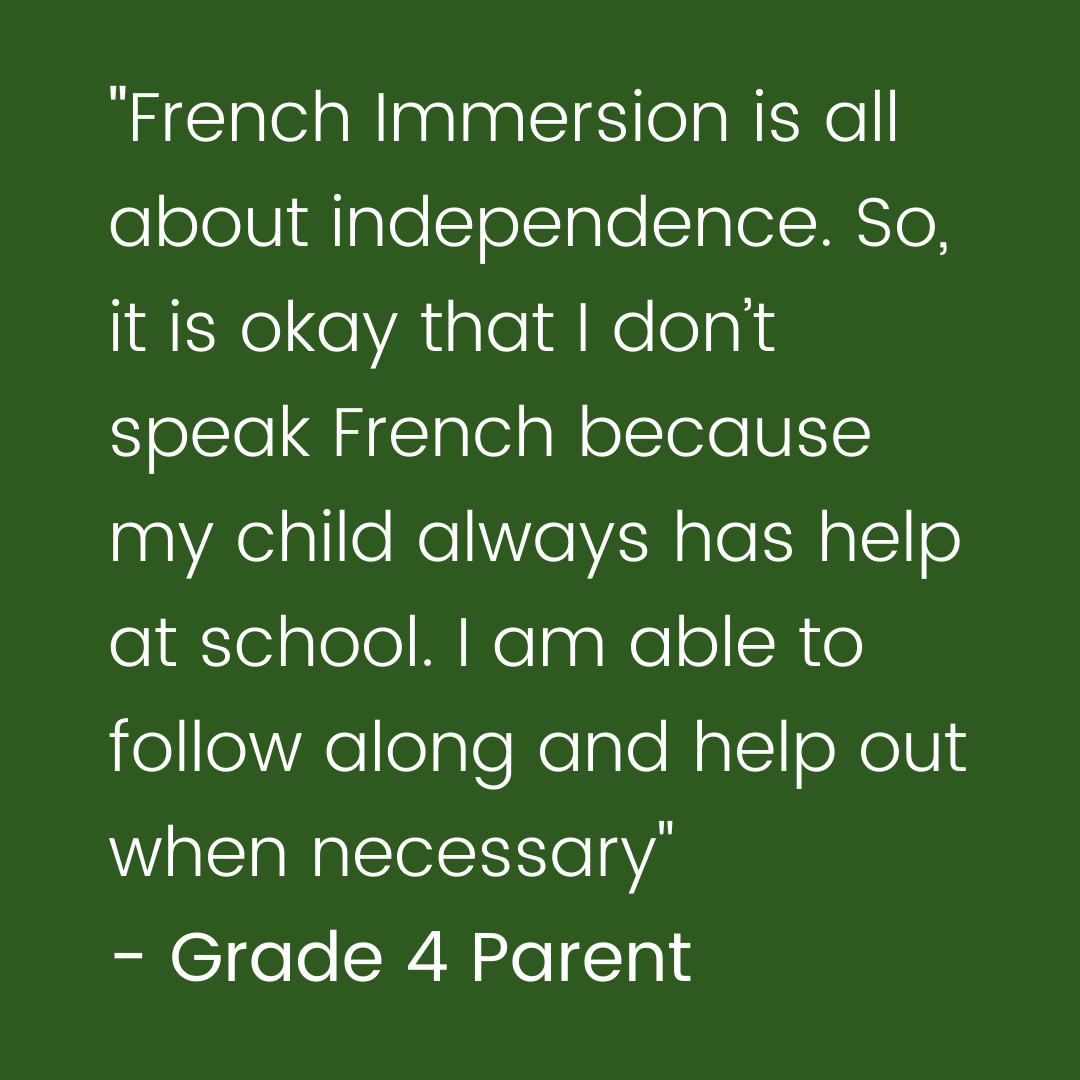Parent Resources
Effective ways to help support your child with French?
- Show an interest in the program and their progress
- Encourage and support their efforts
- Participate wherever possible in the total life of the school. Become a volunteer in the classroom by coming on field trips, helping with reading programs, helping with Munch a Lunch, etc.
- Provide additional opportunities for exposure to French language and culture beyond the classroom, such as choosing one or two TV programs and watch them on the French channel or participate in French community events.
- Help them develop good study habits: reread homework questions, understand what the question is asking, find answers in notes or other resources, and help them to answer questions by formulating complete sentences.
- Have them read orally and summarize briefly what is read. This often helps consolidate French comprehension and encourages the child to extract the general meaning of a passage rather than dwelling on a few words they don’t understand. If those few tricky words keep re-appearing in passages, then consult a dictionary or online translator. It is normal not to understand every word.
- Keep in contact with your child’s teacher, they can direct you to helpful websites or resources, and give you additional information about specific assignments.
- Set up homework partners with the help of the teacher, so your child can contact their study partner for support.
"It truly feels like a community. And it’s not just about the French programming. We appreciate the weekly themes and emails from the principal. Our child talks a lot about what he/she is learning from the HUG coaches. And the custodian is super friendly, too. We enjoyed the pre COVID-19 dances, winter festival, etc. and the online Family Paint Night. This truly is a wonderful place and we tell people often how glad we are for choosing Connaught."- Parent |
Shaping Literacy skills in the home

Below are some of the literacy skills that can be transferred from one language to another
- Communicate effectively – regardless of the language being used, communication makes us organize our thinking. We need to think about our audience and choose language that explains our thinking with precision.
- Think imaginatively and analytically – we use language to wonder about and imagine solutions to everyday problems, and to weigh a range of possibilities and outcomes to our actions.
- Access, manage, evaluate and create information – languages serve as tools that allow us to receive information, build knowledge and communicate understanding. When we learn to do this in one language, we can apply it to any language we speak.
- Understand how we learn and think – when we come to know how we think and what helps us learn, we grow in our ability to apply this knowledge to new learning. When we recognize our unique strengths and ways of learning, we can apply this in every language we use.















